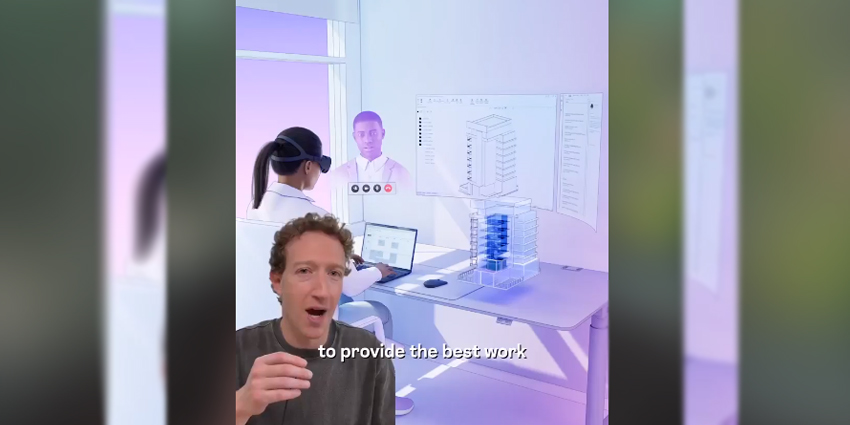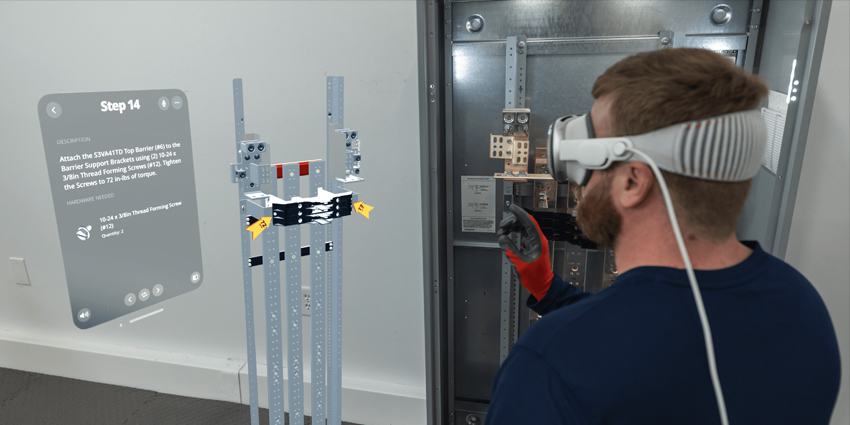The nature of work has changed drastically over the years, thanks in large part to the evolution of technology. In the last decade alone, we’ve transitioned from traditional office spaces to remote and hybrid working strategies. Digital tools have become the foundation of our work lives, enabling everything from comprehensive collaboration to enhanced communication.
Even AI and bots have become common components of the workplace, assisting with automating tasks, accelerating projects, and connecting individuals. Now, as we look ahead to the next iteration of the future of work, immersive platforms and the metaverse are becoming increasingly intriguing.
Technology giants like Microsoft, Meta, and Varjo are already investing in the idea of “metawork”, introducing new platforms and toolkits intended to connect employees in a universal digital environment. So, what will the metaverse do for the future of work?
The Workplace Challenges the Metaverse will Solve
As a relatively nascent concept in the digital world, the metaverse is still misunderstood by many. As such, it’s difficult to define for certain exactly what the future of work will look like in a metaverse environment. The metaverse draws on the benefits of a wide range of technologies, from blockchain for security and governance, to digital currencies, XR headsets, and machine learning.
Evolutions in the metaverse, such as Horizon workrooms from Meta, and Microsoft Mesh’s integration with Teams, suggests the metaverse will provide companies with a new way to enhance company culture, employee engagement, and align staff in virtual environments.
However, the metaverse could also solve various other workplace challenges present today, such as:
1. Proximity bias and distributed teams
Hybrid and remote work are undoubtedly a common component of the future of work, with countless companies now investing in more flexible working environments for teams. However, while 44% of professionals believe in the benefits of hybrid working, around 25% say they’re concerned that being outside of the physical workplace will mean they miss out on opportunities.
Already, 25% of staff members admit they’re more likely to seek insight and guidance from employees they work with in a shared physical environment. While video conferencing and messaging can help to unify employees, current collaboration tools often lack the power to create a true sense of co-presence. The metaverse, on the other hand, has the potential to bring people together in shared virtual environments, through extended reality, increasing employee bonds.
2. Preserving collaboration and productivity
As a tool for collaborative work, the metaverse can accomplish much more than simply bringing teams together in a unified space. The metaverse promises to bring new levels of connectivity to the world of virtual work, allowing people to interact in real-time with digital twins, explore different environments safely, and share information like never before.
Companies like Matterport have already begun to develop software to digitally replicate physical spaces, which allow employees to engage with each other remotely, building new products, and ideating on projects with minimal risk or resource waste. The metaverse can also make it easier for executives and supervisors to watch over teams, tracking their morale, engagement, and productivity with AI-enhanced insights, to drive future business decisions.
3. Improving onboarding and learning
In the age of hybrid and remote work, it’s easy for onboarding, upskilling, and reskilling employees to take a back seat. Traditional onboarding and learning experiences revolve heavily around the ability to connect with team members in person. However, the metaverse could change all that. The Adecco group, for instance, uses a forklift driving onboarding program in virtual reality to ensure candidates can prepare effectively for life on the job.
PWC has also shared insights into how valuable metaverse technologies like XR can be in teaching employees new hard and soft skills. According to their report, immersive training leads to better knowledge retention, engagement, and confidence among employees. With the metaverse, companies can effectively welcome new team members into the landscape, and ensure their existing team members can develop the skills they need.
4. Increasing employee engagement
One of the major issues metaverse could tackle in the future of work, is the growing problem of employee disengagement. One study found 32% of employees would be happy to work in the metaverse, and feel excited by the concept. The metaverse has the potential to boost employee engagement in a variety of different ways. It can provide companies with tools to develop a stronger culture in the virtual world, where teams can connect and bond more effectively.
Engaging immersive experiences in the metaverse can make team members feel more connected to their colleagues, and more invested in the vision or goals of the business. The metaverse environment also provides access to a range of solutions for gamification, which can help to improve healthy competition in the workplace.
5. Solving talent scarcity
Talent shortages have become a common issue in virtually every industry over the last couple of years. However, the metaverse could help with this. It could ensure that business leaders can access talent from a wider range of environments, by allowing team members to connect more effectively in a border-less, virtual space.
The metaverse also delivers opportunities for training and upskilling new employees, so business leaders can provide staff with more on-the-job skills before they start a role, even if they’re going to be working remotely. Additionally, metaverse solutions like extended reality can make it easier for supervisors and business leaders to assist and support employees on the job.
Is the Metaverse the Future of Work?
Just as the advent of the internet changed the way we live and work on a massive scale, the metaverse promises to have a similar impact. Not only will it transform the way we work, but it could also open the door to new job opportunities and roles for innovators, from metaverse moderators, to 3D content designers, and NFT artists.
However, developing the future of work in the metaverse isn’t without its challenges. Companies will need to consider a number of potential pitfalls when developing their meta-work strategy, from the increasing issue of metaverse fatigue, to the privacy and security problems that can emerge in a digital landscape. A truly effective metaverse workplace will need to be diverse, inclusive, secure, and safe, to ensure teams can thrive in the virtual world.
The metaverse certainly has the potential to transform the future of work, but the metaverse workplace is still definitely a “work in progress.”







